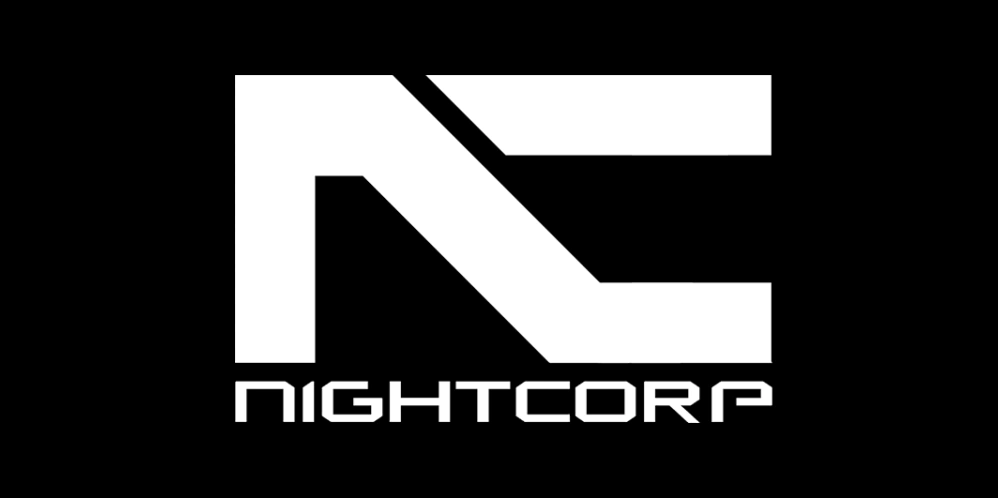Night Corp
Night Corp is a unique enterprise that puts its full attention on Night City and its affairs, inspired by the ideals of the city's founder, Richard Night, and his wife Miriam. By adhering to their founders' vision, the company aims to improve the living standards of all Night Citizens, putting the metropolis' welfare first and foremost.
Night Corp is a development firm and public works corporation that acts as the largest contractor of public procurements within Night City's boundaries, building and renovating facilities such as roads, bridges, tunnels, metro lines, power plants, net transmitters, waterworks, sewerage, among others. The corporation is also known for their charities designed to aid the poor children of Night City, scholarship programs to benefit gifted youth — Jefferson Peralez, future Mayor of Night City, was among them — or donations to the various city orphanages. Night Corp is also heavily invested in research for ecology and alternate power sources, as well as other developments involving avant-garde technology, financing multiple local projects in the process. They also possess orbital stations and satellites around Earth.
Due to the corporation's seclusive and often downright secretive policies, not much is publicly known about Night Corp, sparking many rumors about their operations, which supposedly include underwater works in Del Coronado Bay, secretive engagements in mayoral elections, or shares in their orbital projects. Night Corp security is tight, and most corporations prefer to not mess with them in their own territory.
The company's headquarters are located in the City Center district of Night City.
History
Night Corp is one of the most enigmatic and resilient corporations in Night City, with a long and complex history that mirrors the city’s own turbulent development.
It all began in the early 1990s, when visionary businessman Richard Night sought to build a utopian, self-sufficient metropolis in response to the chaos of the United States Collapse. With backing from major corporations like Arasaka, EBM, Petrochem, and later MA&F, Night launched the Coronado Partnership and founded Coronado City in 1994 on the site of Morro Bay. His goal was to create a shining example of corporate-led urban planning, complete with culturally themed neighborhoods and a cutting-edge business district. However, his exclusion of union-run firms angered organized crime, who had a strong hold over West Coast construction. In 1998, Night was assassinated in his penthouse, and his dream city was renamed Night City in his honor.
Following his death, Richard’s wife Miriam Night took the reins. She restructured Night International into a nonprofit group called Night’s Foundation in 1999, aiming to protect her husband’s ideals. But as the city descended into mob violence and gang wars, the foundation lacked the power to make a difference. By the early 2010s, realizing that influence required corporate leverage, Miriam transformed the foundation into a proper corporation—Night Corp—returning to a business model while holding onto its founding principles.
During the 2020s, Night Corp played a critical role in post-war relief after the Fourth Corporate War and the Night City Holocaust of 2023. While initially focused on humanitarian aid, they shifted priorities within a year, redirecting funds away from public relief. Even so, Night Corp proved instrumental in organizing the rebuilding effort, recruiting nomads and outsiders with promises of cyberware upgrades and generous compensation to clear the radioactive ruins. They also collaborated in the development of early CitiNet infrastructure by funding Ziggurat Corporation, helping to restore communication networks throughout the city.
Throughout the 2040s, Night Corp invested heavily in rebuilding Night City. However, their focus was often criticized, with resources funneled toward wealthier districts like the Glen rather than more impoverished areas. They also appointed influential figures, such as Zohara Freeman, to administrative positions and got involved in large-scale infrastructure projects. One notable disappointment came in 2045, when plans for a mass driver by Orbital Air were scrapped. The failed project strained relations between Night Corp and OA, leading to a cold war between the two.
By the 2060s, Night Corp's influence remained steady, but not dominant. In 2068, they acquired the struggling NCART subway system following a gas attack incident and turned it into a more reliable public service. Yet, by the 2070s, the company had clearly lost ground to megacorporations like Arasaka and Militech. Despite their reduced corporate clout, Night Corp continued to control much of the city’s infrastructure and still had a say in civic matters, supporting institutions like the NCPD and MaxTac.
Internally, Night Corp grew increasingly secretive. Its operations were shrouded in mystery—even to its own employees—which led to numerous conspiracy theories. Nonetheless, the company persisted with ambitious projects, such as reviving the intercontinental maglev railway and sponsoring the Night City Corsairs football team with proprietary cyberware from their clandestine Football Science Lab.
By 2077, Night Corp had regained some recognition, being named the fifth best corporation to work for in Night City. It had reduced its mandatory workweek hours and was making tangible progress on the maglev project, including a new tunnel from the Badlands. However, controversy struck when employee Sandra Dorsett leaked data revealing that the corporation had been using artificial intelligence to condition and manipulate its own workers—part of a secretive control program targeting individuals deemed useful by the company.
Night Corp remains a symbol of Night City's complex legacy—a corporation born from idealism, shaped by tragedy, and carried forward through pragmatism, secrecy, and persistent influence.

Founding Date
1990
Type
Corporation, Manufacturing



Comments